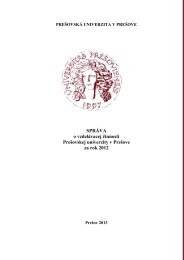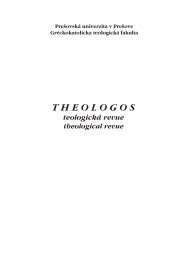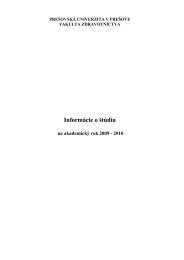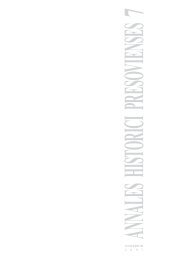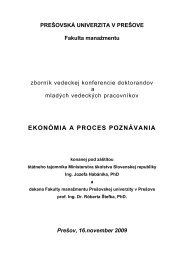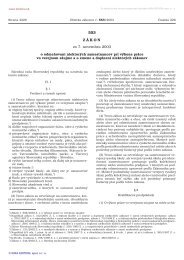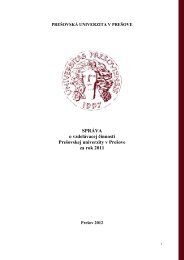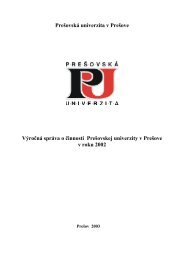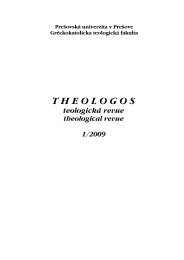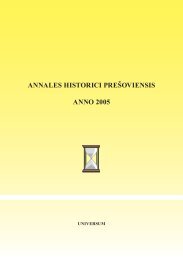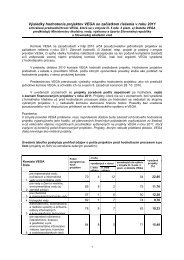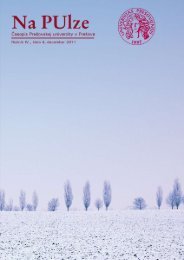T H E O L O G O S - Prešovská univerzita v Prešove
T H E O L O G O S - Prešovská univerzita v Prešove
T H E O L O G O S - Prešovská univerzita v Prešove
Create successful ePaper yourself
Turn your PDF publications into a flip-book with our unique Google optimized e-Paper software.
Bożena Drzewicka<br />
2 A new dimension and new challenges for the international<br />
dialogue<br />
The relations between civilizations, with a due stress laid on differences,<br />
became especially important in the 1990s. That increased interest was<br />
caused by a number of factors which will not be taken into consideration<br />
in this analysis. The global and regional international organizations soon<br />
participated in the transnational dialogue. Conferences as well as special<br />
programmes and projects were initiated by UN agencies, including UNE-<br />
SCO, and the year 2001 was proclaimed the year of dialogue between<br />
Civilizations and Cultures. 25 Mutual contacts between the EU and ASEAN<br />
became more dynamic, which was facilitated by the termination of the<br />
“cold war”. In the 1990s, the EU’s new closeness to Asia had resulted in a<br />
co-operation and in the acceptance of Asia’s equality. Certain new projects<br />
had been initiated by the EU and many an agreement between ministers<br />
of foreign affairs from the two regions of the world had been reacted. The<br />
contacts are now much easier due to a rapid development of Southeast<br />
Asia within the ASEAN organization but also due to the creation of a free<br />
trade zone and the elimination of many commercials and legal barriers.<br />
Newly established organs are co-operation committees; a “New Strategy<br />
for Asia” was also agreed upon. The other party suggested a wider forum<br />
for the Europe-East Asia dialogue and co-operation. 26 An obvious success<br />
was the (first) 1996 Bangkok summit in which the EU and ASEAN +3 (i.e.<br />
Japan, China and the Republic of Korea) took part. Representatives of the<br />
European Commission are now participants of a new forum, called Asia-<br />
Europe Meeting (ASEM). 27<br />
Consultations of business and self-government representatives are<br />
organized every two years in order to discuss different sectors of economy.<br />
In addition to that, there are contacts aimed at solving crucial problems,<br />
including the war against terrorism or the fighting of drug pushing. Bi- and<br />
multilateral co-operation and exchange, the latter in the fields of science<br />
and culture, have become permanent. Mutual presentation of achievements<br />
and experience take place. A variety of issues are discussed in the<br />
course of the meetings, e.g. environment protection, functioning of prisons,<br />
infrastructure or cultural identity, defence against Americanization. 28<br />
25<br />
The 1987 programme called „The Silk Road: A Road to Mutual Understanding” is a<br />
significant confirmation.<br />
26<br />
Electronic source: http//www.asean.or.id/historyk/overview.htm, www. Asean.or.id/<br />
polities/ov.psc.htm.<br />
27<br />
Y. L. Hwee, The Bangkok ASEM and the future of Asia – Europe relations, “Southeast<br />
Asian Affairs” 1997, p. 40-44.<br />
28<br />
For a detailed discussion see: M. S. McDougal, H. D. Lasswell & L. Chen, op.cit. p. 270-<br />
280.<br />
32



